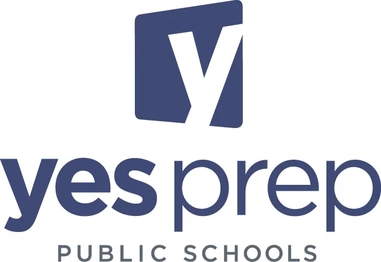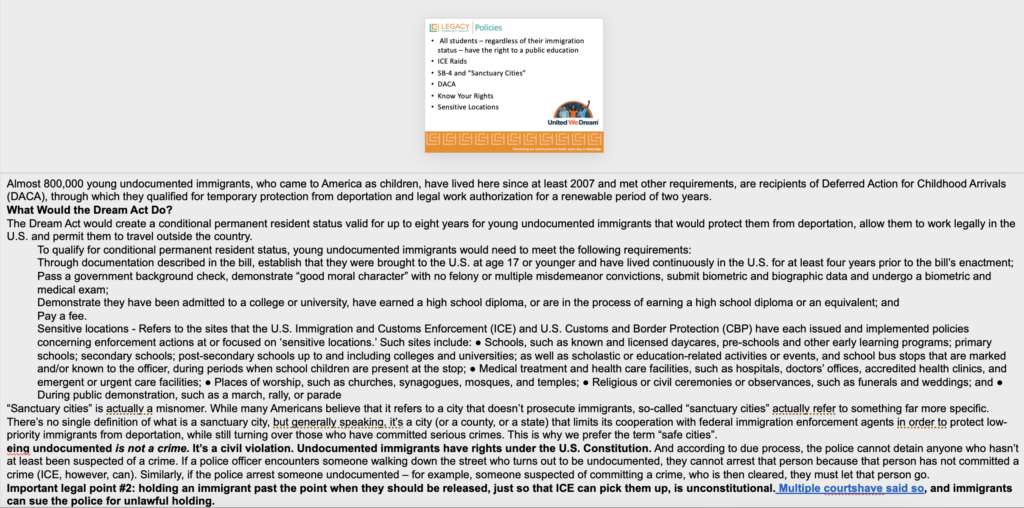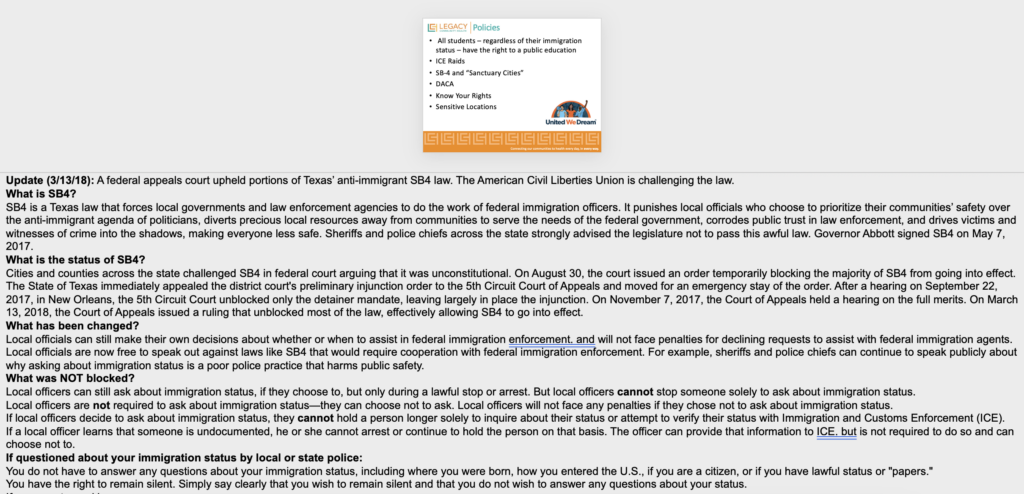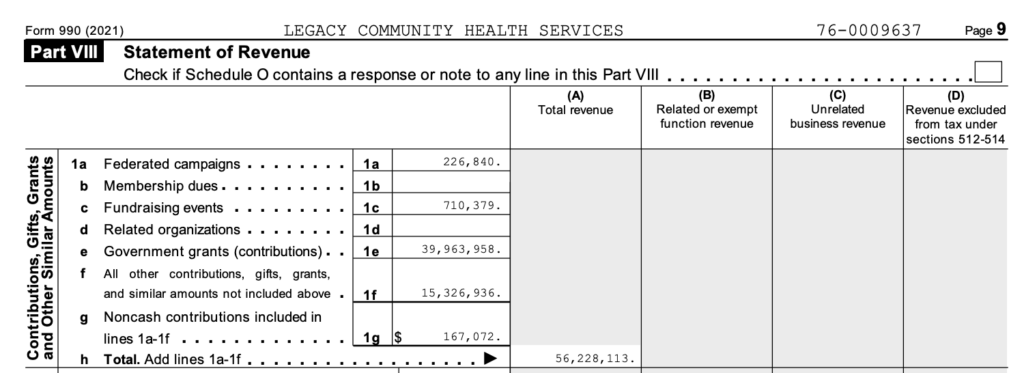
Houston-Area Health Clinic Presentation to Charter School Advises Staff on Immigration Policy, Calls Texas Law “Anti-Immigrant”
Incidents
According to documents obtained through a public records request, Legacy Community Health Center gave a presentation in August of 2019 to YES Prep employees on “Immigration and the Impact on Students and Families” that was also sent to the school’s Director of Counseling and Wellness Services. This health center operates clinics in several Houston-area schools.
Notes in the PowerPoint for the tenth slide on “Policies” include detailed advocacy on the benefits of the DREAM Act:

It also includes an analysis of Texas’ SB4 – a state law passed in 2017 – lifted directly from the ACLU’s website, which asserts “SB4 is a Texas law that forces local governments and law enforcement agencies to do the work of federal immigration officers. It punishes local officials who choose to prioritize their communities’ safety over the anti-immigrant agenda of politicians, diverts precious local resources away from communities to serve the needs of the federal government, corrodes public trust in law enforcement, and drives victims and witnesses of crime into the shadows, making everyone less safe. Sheriffs and police chiefs across the state strongly advised the legislature not to pass this awful law. Governor Abbott signed SB4 on May 7, 2017.”

Advice provided on interaction with law enforcement includes what to do “If you are stopped in your car” and “If you are under arrest,” and refers people to contact the ACLU – which challenged the law in federal court:

Notes in the PowerPoint for the eleventh slide on “Impact on Students and Families” dismisses arguments about the legal immigration process, stating:
Why don’t “illegals” get in the back of the line, and do it the right way?” The short answer is that “the line” is a mythical place, a phrase used to deflect the need for immigration reform. The fact is, for most undocumented immigrants there is no application they can fill out, process they can go through, not even a fine they can pay to start the process of becoming U.S. citizens. As a former undocumented immigrant, I know firsthand that being undocumented is not a state one chooses.
The first challenge to immigrating to the U.S. legally is that there are only a few categories to obtain a worker visa to legally work in the U.S., including for fashion models of “distinguished merit and abilityThe second challenge undocumented immigrants face in becoming permanent residents, and eventually U.S. Citizens is that there are only a handful of ways to obtain permanent residency; through family, a job (which as explained above is not feasible for many immigrants), as asylum seekers, and a few other special circumstances. Unless an undocumented immigrant has a relative, such as a mother, father, or spouse that is a permanent resident or U.S. Citizen, there are few other processes to fix their immigration status.
The Legacy Health Center is a “federally qualified health center” with a total revenue in 2021 of $369M that received over $39M in government grants?

Handouts provided to attendees included English & Spanish flyers from the Houston Immigration Legal Services Collaborative, as well as a Spanish-language document for new immigrants on services in the area. You can download those at the top of this post.
Stay Informed
